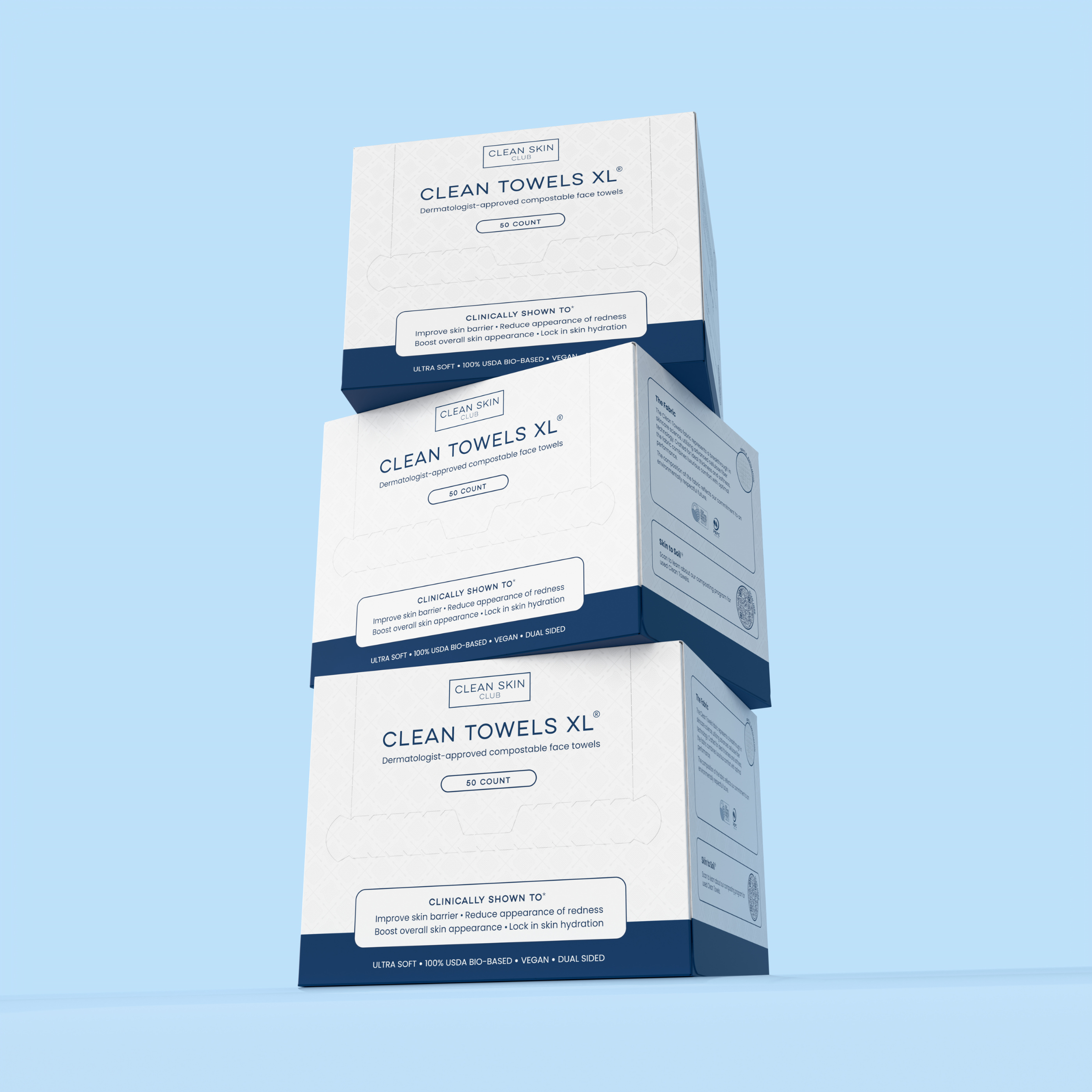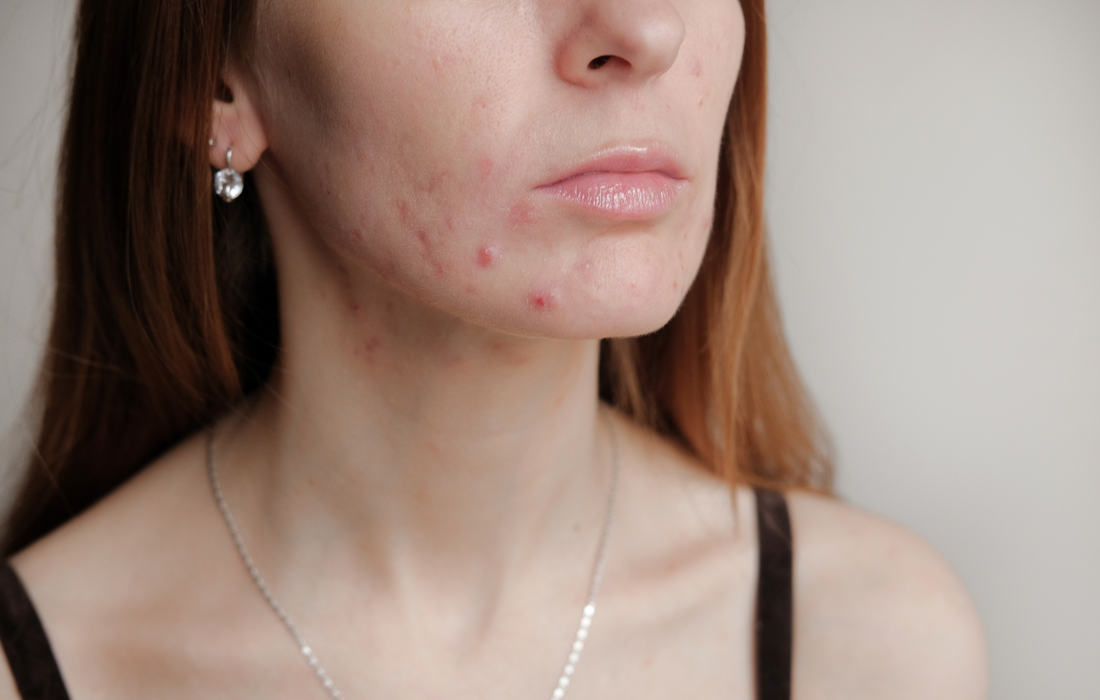Acne is the most common skin condition in North America, affecting 50+ million people every single year. But it’s so much more than just a skin condition - acne can have a negative & direct impact on the mental and emotional wellbeing of those experiencing it. While there is no cure for acne, it CAN be managed. But first, you must understand what acne really is and how to implement effective skincare & lifestyle practices to get breakouts under control.
Acne is not something solely caused by a poor diet or a poor skincare routine. These can certainly be contributing factors, but acne at its core is not any one person's fault for any one reason. This is because acne is a hereditary disorder of the follicle, so if you were predisposed to experiencing acne you were going to experience it no matter what. Hormonal changes, stress, genetics, topical products, certain medications, and much more can all contribute to the development of acne so it takes working with a professional to figure out how to address each of these factors.
Dealing with acne can be a frustrating experience, but with the right practices, you can manage and prevent breakouts. Here are some dos & don'ts for acne-prone skin:
- DO treat your skin with kindness. Some common misconceptions are that you have to dry out acne to heal it or if you’re feeling a burn or sting the products must be working. In reality, nourishing your skin is the best way to promote healing and overuse of products or using products that are too strong can cause acne to worsen.
- DON’T choose harsh scrubs or astringents to attack your skin. Instead, work with your skin’s natural healing ability by providing adequate hydration and moisture to protect your skin’s barrier. This means don’t fall victim to marketing schemes that tell you to pick only “oil free” products.
- While it may be tempting, DON’T pick at or “pop” your acne lesions. Picking can lead to scarring, increased inflammation, and worsening appearance of the lesions. If you have trouble keeping your hands off your acne, using a physical barrier like the Clean Skin Club Dermadot Patches can protect your skin, even from yourself.
- Remember, DO be kind to yourself. Acne forms due to an excess of dead skin cells trapped within the follicle, caused by that genetic predisposition mentioned earlier. That process occurs regardless of what you may have been doing prior to working towards getting your skin under control. 85% of people will experience acne at some point in their lives so you are far from alone in this journey.
In order to truly manage your acne, it takes working 1:1 with a skincare professional that specializes in acne, an Acne Expert if you will. They will work with you in 3 major areas:
- Choosing the right skincare regimen based on your skin type, acne type & severity, and any additional unique needs. Products like cleanser, toner, and moisturizer should support your skin type and keep it healthy. Exfoliating acids should address your acne type - for example, salicylic acid is excellent for acne rosacea but mandelic acid will be better for combination acne. Your acne severity will determine if you need an additional exfoliant such as benzoyl peroxide and your skin tone & type will determine the strength of it.
- Getting you in to receive professional treatments such as enzymes, corrective peels, LED therapy, and more. Professional treatments and extractions help to speed up the clearing process and address other concerns such as post inflammatory hyperpigmentation.
- Taking a look at your diet and lifestyle choices that may be impacting your skin. For example, if you are drinking a whey protein shake with peanut butter every day this could be a huge problem for your skin. Whey is a dairy product and peanut butter contains a substance that mimics androgen hormones, both of which are issues for acne prone individuals.
Some hygiene tips for acne prone skin include:
- Keep your hands off your face. Touching your face can transfer bacteria and oils, leading to worsening breakouts. Avoid resting your chin or cheeks on your hands, especially if you use comedogenic hand lotion.
- Change pillow cases frequently as they can harbor bacteria and pore clogging ingredients from hair care or laundry detergent. Consider using an antibacterial pillowcase such as the Clean Sleep Silver Ion Pillowcase.
- Avoid using your hand towels on your skin. They can harbor bacteria, pore clogging/irritating ingredients from laundry detergent, and just be too harsh of a material for your skin. Instead, opt for the Clean Towels XL instead.
No matter where you are in your acne journey, you are not alone and there are Acne Experts out there that can make clear skin possible for you.
Thank you for reading!
This article of the Skinsider Scoop was graciously written by Alex Hernandez, Licensed Esthetician & Education Development Manager & Lead Educator at Face Reality and edited by the Clean Skin Club team. If you're interested in more from Alex, follow her on Instagram @hello.hernandez



